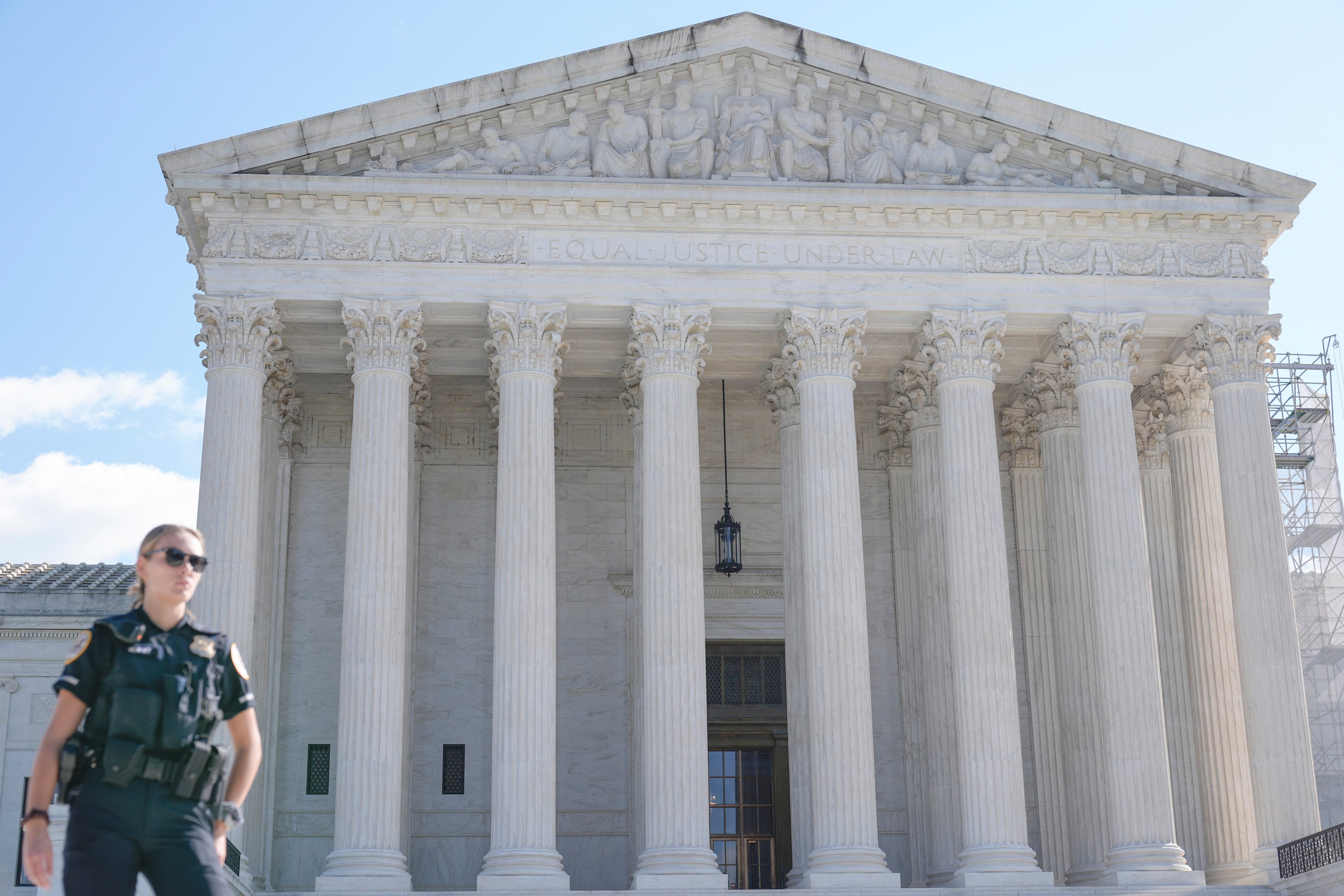Supreme Court allows a rule limiting pollution from coal-fired power plants to remain in effect
The Supreme Court has allowed a federal rule aimed at limiting planet-warming pollution from coal-fired power plants to remain in place as legal challenges play out

Your support helps us to tell the story
From reproductive rights to climate change to Big Tech, The Independent is on the ground when the story is developing. Whether it's investigating the financials of Elon Musk's pro-Trump PAC or producing our latest documentary, 'The A Word', which shines a light on the American women fighting for reproductive rights, we know how important it is to parse out the facts from the messaging.
At such a critical moment in US history, we need reporters on the ground. Your donation allows us to keep sending journalists to speak to both sides of the story.
The Independent is trusted by Americans across the entire political spectrum. And unlike many other quality news outlets, we choose not to lock Americans out of our reporting and analysis with paywalls. We believe quality journalism should be available to everyone, paid for by those who can afford it.
Your support makes all the difference.The Supreme Court on Wednesday allowed a federal regulation aimed at limiting planet-warming pollution from coal-fired power plants to remain in place as legal challenges play out.
Republican-led states and industry groups had pushed the justices court to halt the rule, arguing that the Environmental Protection Agency overstepped and imposed unattainable standards.
The rule requires many coal-fired power plants to capture 90% of their carbon emissions or shut down within eight years, though deadlines do not take effect for several years.
The power industry is the nation’s second-largest contributor to climate change, and the rule is a key part of President Joe Biden’s pledge to eliminate carbon pollution from the electricity sector by 2035 and economy-wide by 2050.
The high court earlier this month also left two other regulations in place for now, but other environmental regulations have not fared well before it in recent years. In 2022, the justices limited the EPA’s authority to regulate carbon dioxide emissions from power plants with a landmark decision. In June, the court halted the agency’s air-pollution-fighting “good neighbor” rule.
Another ruling in June, overturning a decades-old decision known colloquially as Chevron, is also expected to make environmental regulations more difficult to set and keep, along with other federal agency actions. The U.S. Chamber of Commerce cited that ruling in court papers supporting the challenge in the coal plant case.
An appeals court had allowed the EPA's new power plant rule to go into effect.
A panel of three judges — two nominated by Democratic President Barack Obama and one by Republican President Donald Trump — found that the states were not at risk of immediate harm because compliance deadlines do not take effect until 2030 or 2032.
Environmental groups have said the standards are reasonable, cost-effective and achievable, and well within the EPA’s legal responsibility to control harmful pollution, including from greenhouse gas emissions.
The National Mining Association argued that the rules threaten the reliability of the nation’s power grid by forcing the premature closure of power plants as demand for electricity surges.
The EPA projects the rule would yield up to $370 billion in climate and health net benefits and avoid nearly 1.4 billion metric tons of carbon pollution through 2047, equivalent to preventing annual emissions of 328 million gasoline-powered cars.